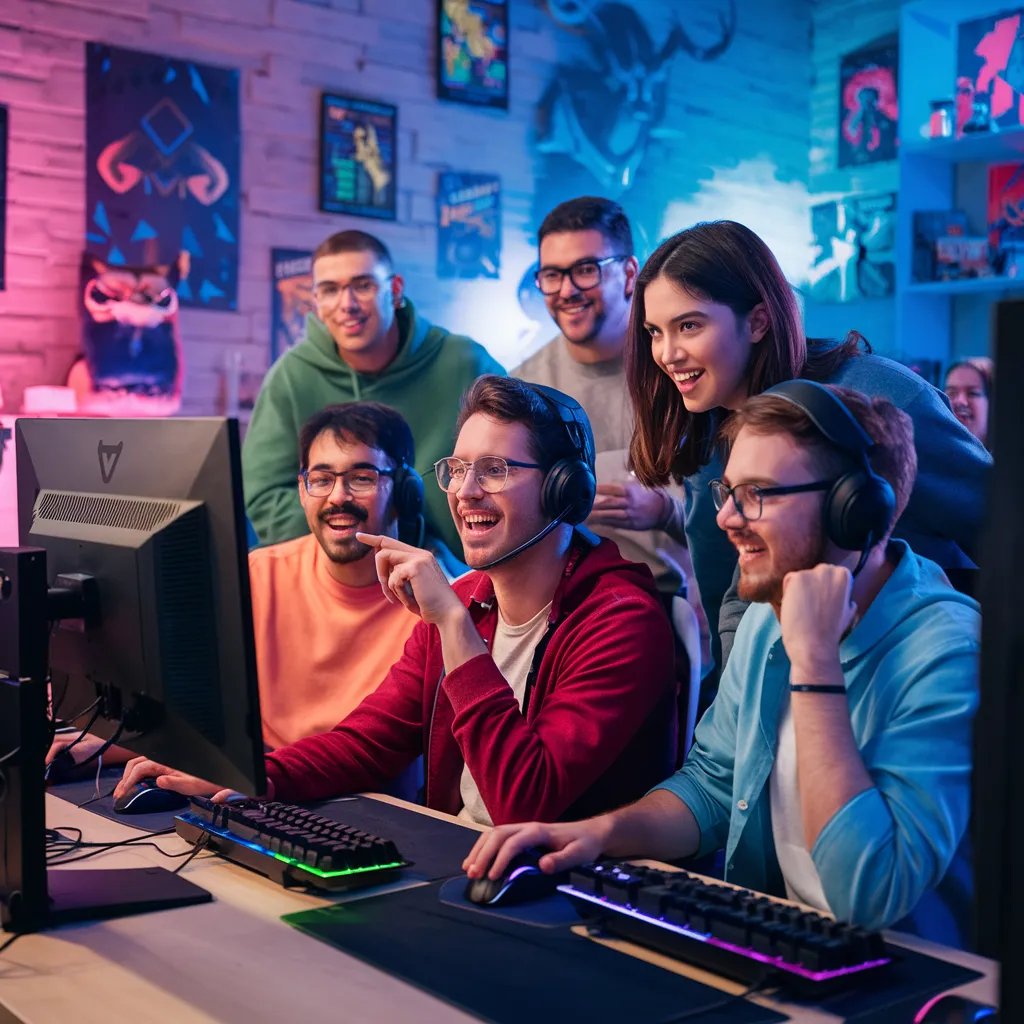How big is the gaming industry?
The answer to this question depends upon what sources you look at. When I researched this, the numbers were all over the board.
Some had the industry at a level of $400 billion while others were placing it at around $150B. For the sake of this article, we will presume it comes in around $200 billion.
Certainly this is an astonishing growth rate. This is going to be a $1 trillion industry at some point regardless of what happens.
That said, how could Web 3.0 influence this?

Image generated by Ideogram
Web 3.0 Gaming Turning Into Trillions
It is hard for us to fathom how much of an impact Web 3.0 can have on the size of different industries. The numbers we presently see are minor compared to what is coming up.
The other day I covered how the social layer is going to be the significant portion of the market capitalization of cryptocurrency. This is value that is already in existence yet is not captured.
Web 3.0, i.e. tokenization, does this.
Games are no different than anything else of interest. There are those who play games yet are also "fans". They are willing to discuss games and interact in ways outside of it. Here is where we see it becoming an entire social setting.
What happens, to jump deep into the future, when we are dealing with multi-world, VR driven games? As we can surmise, this will really enhance the experiences while also taking things to a different level.
Ergo, how much more value is generated at that point?
Another concept that is of interest is the Play2Own. This is the idea that gaming assets are not of great value outside that particular game. Instead of that approach, why not figure out a way to transfer that value from one set of qualities to another?
In this situation, if someone puts in $1,000 they have an asset worth that. When playing one game, that asset could be a weapon that provides enhanced fighting skills.
If, however, the person loses interest in that game, the asset can be used in another one where it is an accelerant on one's race car.
Unlike today, where another $1,000 is required, the value could simply be transferred.
This could unleash a marketplace where we have hundreds of millions of dollars in value that is constantly being transferred between different games. It becomes a market that ends up feeding upon itself in a positive way. Hence, one is actually investing in the gaming experience since the personal value is retained.
Game Creation
It is impossible to discuss anything online without mentioning artificial intelligence.
Generative AI has the potential to alter everything. At present, when it comes to gaming, it is my understanding it is nothing more than a tool experience game developers are utilizing. The barrier to entry is not falling a great deal due to this.
That will likely change if the forecasts are correct. Many forms of development (coding) could be simplified. After all, this is what Jensen Huang of NVIDIA said is his company's goal: to eliminate coders and provide it to everyone.
Depending upon how close they get to this outcome, it does open up the door for more entrants. While this will dilute the pool since more games will keep popping up, it does provide an increase in the totality.
We can see this with video.
YouTube has provided a forum where the amount of video generated each day is order of magnitude greater than traditional movies and television. While it might not be of the quality of those productions, it is sufficient for 10-15 minutes of one's time.
Gaming could follow a similar pattern.
Games can leverage the totality of the system by having value already established transferred in. This will, of course, mean other monetization designs are required. No longer is it a case of build a game and sell in-game assets.
That said, with millions potentially getting involved in design, innovation will arrive. It most likely will not come from the major gaming companies but smaller players who create a platform of innovation.
The final thought on this is the tie to a digital platform.
Could a digital platform that isn't focused upon gaming build that in. We saw a bit of this with Facebook. What we might see is something more advanced, where digital platforms incorporate gaming as part of a subscriber service.
We know the barriers for social media are being eradicated. The same is true for gaming. With technology, do not presume there is a moat around what you do.
Web 3.0 makes everything open. My view is it will all come down to the network that things are tied to.